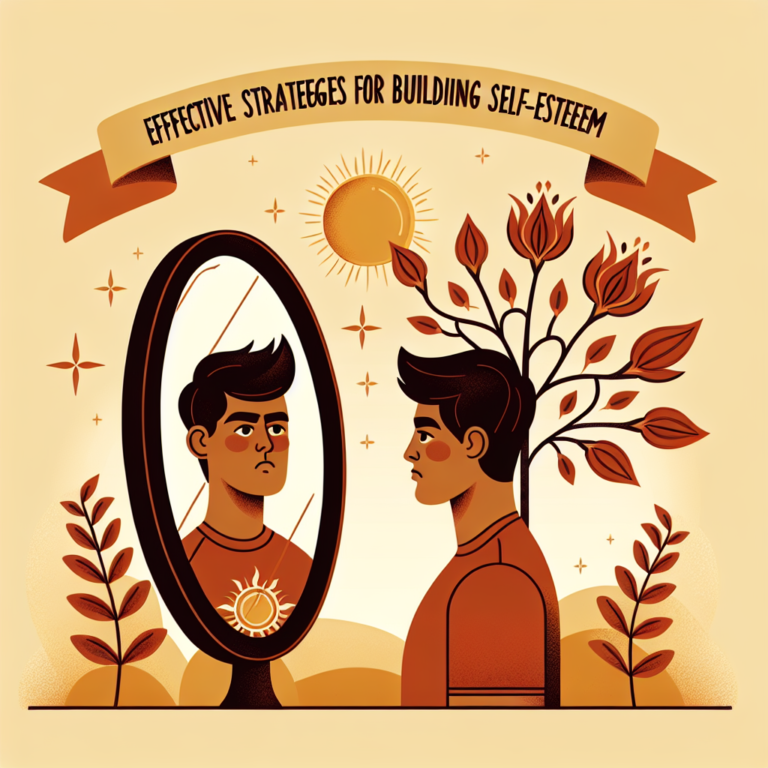
Living with Limitations: The Emotional Landscape of Chronic Illness – The Ultimate Guide to Resilience and Empowerment
Introduction
In a world that often celebrates strength and stamina, the narrative surrounding chronic illness is one of invisible battles and silent struggles. Living with Limitations: The Emotional Landscape of Chronic Illness invites us to delve deep into the emotional experiences accompanying long-term health conditions. People living with chronic illness often feel isolated, misunderstood, and overwhelmed, yet within these challenges lie profound lessons in resilience, empowerment, and the human spirit.
Living with limitations can significantly shift one’s identity, relationships, and outlook on life, sparking questions about purpose, agency, and belonging. This exploration is not merely an academic examination; it is a heartfelt journey towards understanding, acceptance, and ultimately, flourishing despite the hurdles. Through personal narratives, expert insights, and practical strategies, this article aims to empower those affected by chronic illness and their loved ones.
The Complexity of Chronic Illness
Understanding Chronic Illness
Chronic illness encompasses a wide range of health conditions that can alter one’s day-to-day experiences. These can include autoimmune disorders, chronic pain syndromes, mental health issues, and many others that often remain hidden from public view. The impact of chronic illness is multifaceted, affecting not just physical health but also mental, emotional, and social well-being.
Table 1: Common Chronic Illnesses and Their Emotional Impact
| Condition | Common Emotional Responses |
|---|---|
| Fibromyalgia | Anxiety, frustration, isolation |
| Multiple Sclerosis | Sadness, anger, confusion |
| Diabetes | Stress, fear of complications |
| Chronic Fatigue Syndrome | Hopelessness, fatigue |
| Depression & Anxiety | Overwhelm, self-doubt |
Identifying Emotional Responses to Illness
Living with limitations can lead to a variety of emotional responses, including grief for the life that once was, anxiety about the future, and frustration over physical capabilities. It’s essential to acknowledge that these reactions are normal. Understanding this emotional landscape is the first step toward navigating it.
Case Study: Emma’s Journey
Emma, a 32-year-old with fibromyalgia, faced multiple emotional challenges upon her diagnosis. Initially overwhelmed, she felt immense loss over her former life—her career, hobbies, and social interactions. Emma sought counseling, which helped her identify her emotions and work through her grief and loneliness. This journey exemplifies the importance of recognizing and validating emotional experiences as part of living with limitations.
Analysis: Emma’s story highlights that acknowledgment of emotional struggles is crucial. Seeking help can aid in processing feelings, ultimately fostering resilience.
The Impact of Living with Limitations on Identity
Shifting Self-Perception
Many people with chronic illnesses grapple with changes in self-identity. Once vibrant and energetic, individuals may find themselves in roles that feel contradictory to their previous selves. This identity shift can result in a crisis of confidence and self-worth, leading to feelings of inadequacy.
Building a New Identity
Reframing Your Narrative: Altering how you view your situation can be pivotal. Instead of defining yourself solely by your illness, consider other aspects of your identity—passions, talents, and survivor qualities.
- Empowerment Through Advocacy: Many individuals find a renewed sense of purpose through advocacy for themselves and others. Sharing experiences can lead to community support and greater understanding, knitting a sense of belonging amidst living with limitations.
Case Study: Mark’s Transformation
Mark, a 45-year-old with multiple sclerosis, turned his struggle into strength by becoming an advocate for MS awareness. Initially feeling diminished by his diagnosis, he discovered empowerment through sharing his journey, connecting with others, and educating the public about chronic illness. This work enhanced his self-esteem and provided a supportive network.
Analysis: Mark’s transformation showcases how advocacy can transcend personal identity challenges. It converts limitations into powerful sources of resilience and connection.
Coping Strategies for Emotional Well-Being
Establishing a Support System
Living with limitations can feel profoundly isolating. Building a robust support network is vital in managing emotional health. This network can include friends, family, medical professionals, and support groups who understand chronic illness.
Mindfulness and Stress Reduction Techniques
Mindfulness practices such as meditation, yoga, and deep-breathing exercises can significantly reduce stress levels. They promote relaxation and grounding, beneficial for those experiencing chronic pain or anxiety.
Table 2: Mindfulness Techniques for Emotional Resilience
| Technique | Benefits |
|---|---|
| Meditation | Reduces anxiety and increases focus |
| Yoga | Enhances physical mobility and mental clarity |
| Journaling | Provides an outlet for self-expression |
| Deep-breathing | Promotes relaxation and emotional balance |
Managing Emotional Fluctuations
Routine Establishment: Creating a balanced daily routine helps structure life and mitigate feelings of chaos, providing small victories to inspire hope.
- Setting Achievable Goals: Breaking down larger aspirations into smaller, more manageable tasks can foster a sense of accomplishment and empower individuals despite limitations.
Case Study: Lily’s Daily Routine
After struggling with severe chronic fatigue syndrome, Lily worked with a therapist to establish a daily routine incorporating rest, enjoyable activities, and short goals. Over time, these adjustments allowed her to regain a sense of control, emotional stability, and fulfillment.
Analysis: Lily’s experience illustrates how routine and goal setting can help manage emotional well-being, reinforcing the connection between structure and mental health.
The Role of Healthcare Professionals
Advocating for Yourself in Healthcare Settings
Feeling unheard in medical environments can exacerbate emotional distress. It’s crucial to advocate for one’s needs, ensure concerns are addressed, and seek collaborative relationships with healthcare providers.
Finding the Right Therapist or Counselor
Working with mental health professionals experienced in chronic illness can be transformational. Therapists can provide tailored strategies to cope with the emotional toll of living with limitations.
Case Study: Alan’s Health Journey
Alan, recently diagnosed with lupus, faced significant mental health challenges but felt dismissed by healthcare professionals. After seeking out a therapist specializing in chronic illness, Alan learned advocacy strategies that led to improved communication with doctors and a deeper understanding of managing his condition and emotions.
Analysis: Alan’s story emphasizes the importance of finding healthcare professionals who understand the complexities of chronic illness and can facilitate emotional healing through collective care.
Conclusion: Embracing Life with Limitations
Living with limitations due to chronic illness can be a profound and challenging journey, but it is also a pathway to self-discovery and resilience. By understanding the emotional landscape of chronic illness, individuals can cultivate strategies that not only address their physical limitations but also nurture their emotional well-being.
Through personal narratives, community support, and effective coping mechanisms, those affected can find empowerment in their experiences. Remember, while limitations may shape the journey, they do not define it. Embrace the complexities and celebrate the strength that lies within.
FAQs
1. What are common emotional challenges faced by individuals with chronic illness?
Individuals often experience feelings of grief, anxiety, frustration, and isolation as they adapt to life with limitations.
2. How can I find a supportive community for chronic illness?
Look for local support groups, online forums, or social media communities that focus on your specific condition or broader chronic illness issues.
3. What role does therapy play in managing emotional health with chronic illness?
Therapy can provide tools to cope with emotional challenges, validate feelings, and, if needed, facilitate a strong advocacy stance in medical settings.
4. How can mindfulness practices help those with chronic illness?
Mindfulness can enhance emotional resilience by reducing stress, promoting relaxation, and fostering greater mental clarity amidst difficulties.
5. How do I begin to advocate for myself in healthcare settings?
Start by preparing questions, documenting your symptoms, and asserting the importance of your experiences during consultations to encourage collaborative discussions with healthcare providers.
Keywords for SEO Optimization:
- Living with Limitations
- Emotional Impact of Chronic Illness
- Coping with Chronic Illness
- Support for Chronic Illness
- Resilience in Chronic Illness Management
Engagement and understanding are essential in navigating the emotional landscape of chronic illness. This journey, while daunting, presents opportunities for growth, connection, and renewed identity. Embrace it, and don’t hesitate to share your own story in this shared experience of living with limitations.

















